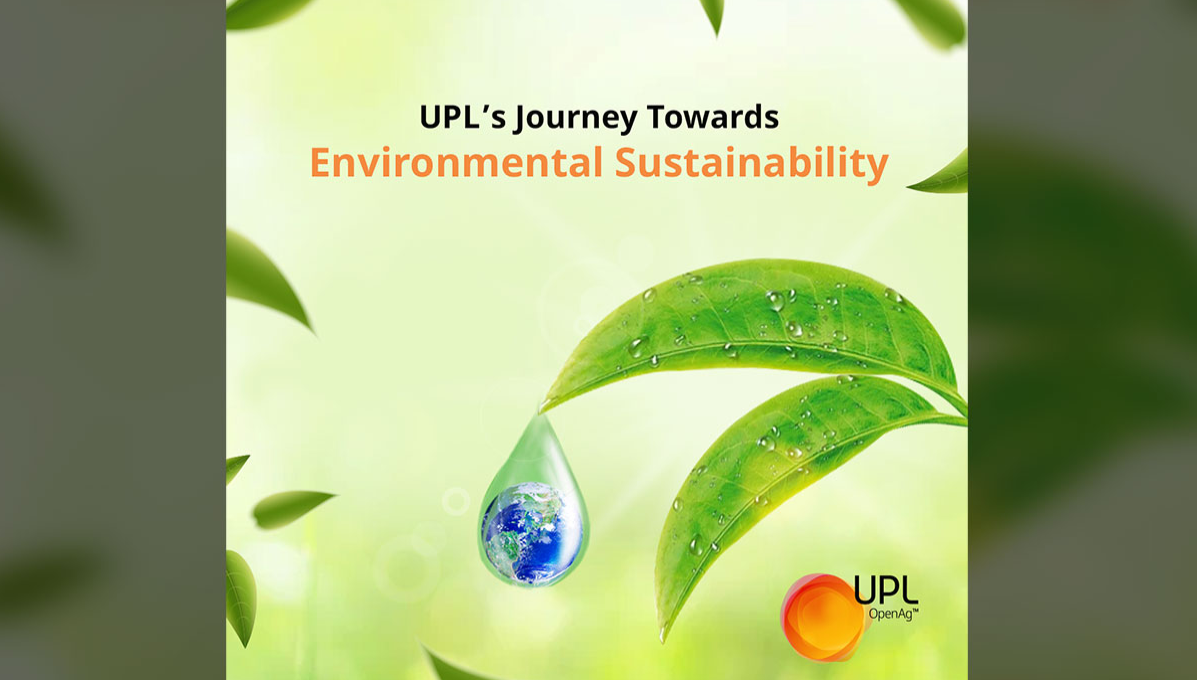A few years ago, the United Nations rolled out 17 Sustainable Development Goals as a target for 2030. With the changes in climate impact over the years, there is a need to evolve practices that take not only environmental development and sustainability into account but also economic and social sustainability.
At UPL, we are consistently working towards ensuring that our practices are in line with the Sustainable Development Vision set by the UN. To ensure transparency in our policies and programs, we issue an annual sustainability report.
We are constantly finding new methods to develop innovative product solutions that reduce our environmental footprint and benefit society. In order to stay proactive in the pursuit of our sustainable development goals, we are involved members of various initiatives such as the World Business Council for Sustainable Development (WBCSD), Responsible Care, Global Agribusiness Alliance (GAA), etc.
Some of the policies that we have undertaken in accordance with the goal of achieving environmental sustainability are:
Environmental sustainability and the ProNutiva® program:
ProNutiva® is a unique crop protection program that integrates natural biosolutions (bioprotection, biostimulants and bionutrition) with conventional crop protection products. It targets higher yields and better crop quality to keep up with the needs of today’s growers. In addition to its high effectiveness, ProNutiva® also leaves behind lower residue levels. The practice of including conventional protection methods contributes towards supporting agricultural environmental sustainability.
2. Water preservation through UPL’s Zeba™
Globally, agriculture is the most water-intensive industry. While this is understandable considering the pivotal role it plays in all agricultural processes, emphasis needs to be put on efficient water usage and conversation. UPL Zeba™ is a soil conditioner that increases the water holding capacity of soil. This reduces the amount of water required for irrigation, allowing for greater yield with less water. As a result, agriculture's water footprint is reduced, while also having a positive impact on water supplies and associated costs.
3. Efficient energy and emission management
Being aware of the ongoing global energy crisis and the importance of using alternative sources of energy, UPL has a dedicated energy cell that works towards enhancing our energy usage and efficiency. We are steadily making the shift to renewable sources of energy and have signed a power purchase agreement (PPA) with renewable electricity providers. Our approach involves strategic energy conservation by enhancing energy efficiency and decarbonizing operations. Here are some of the initiatives we have taken towards this:
Installing a scaleban-
Implemented to recycle ETP treated water into the cooling tower up to 2,50,000 ppm TDS. This helps us to reduce abstracted water demand in the cooling tower.Dewatering ETP sludge-
We use a volute machine for efficient dewatering of ETP sludge. This will help in the efficient management of sludge dewatering in our effluent treatment plant.Systematic reuse of water resources-
Implemented FO technology for efficient treatment of high TDS & low COD effluent stream. This helps us to enhance the reuse & recycling of treated wastewater.
4. Minimizing our water footprint:
Recognising the urgent need for efficient industrial water management to ensure future water security, UPL has various water management programs in place. By ensuring the smooth functioning of systems such as rainwater-harvesting and waste-water treatment, we have succeeded in significantly reducing our fresh water consumption and water footprint. Our full-fledged rainwater harvesting tank has a capacity of 10000 cubic meters of rainwater in the monsoons.
Through our world class effluent reuse and recycling system, we have achieved a 60% zero liquid discharge system globally. By closely following local and national laws related to effluent discharge, we aim to do our part towards reaching optimum environmental sustainability.
5. Postharvest practices aimed at reducing food loss
In the United Nation’s Sustainable Development Goals, Target 12.3 calls for reducing food losses along the production and supply chains. A certain quantity of produce is often removed from the supply chain due to damage caused by pests, diseases or improper storage practices. UPL aims at reducing this statistic of food loss in line with the UN’s goals. UPL QUICKPHOS™ is a potent fumigant that is used to ensure the safety of the produce post-harvest. After all, food saved is food earned.
6. Carbon emission management
In collaboration with FIFA Foundation, UPL is working on a ten-year programme to enable the reduction of carbon dioxide emissions and reward smallholder farmers in developing markets for adopting sustainable agricultural practices.
We have also planted 5,99,379+ trees across 787.79 acres, capturing 11,987+ MT of CO2 over the years. In addition, we are consciously making environmentally driven decisions within our organisation towards reducing our carbon footprint at an operational and supply chain level. As a move toward decarbonizing our operations, we have initiated the use of biomass as a source of energy. We have also initiated plans to install a biomass boiler for our operations, with 30 MT per day of steam generation. These efforts all contribute towards significantly reducing our carbon footprint.
UPL’s sustainability rating has enhanced year after year in the last 5-years. In 2020 and 2021, Sustainalytics ranked us as No. 1 among all agrochemical companies globally for our overall sustainability performance. As technology and science concerning agricultural methods progress, we will continue to develop and reimagine our products and services to keep up with the shared global vision of environmental development and stability.
